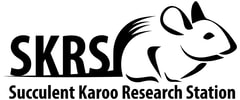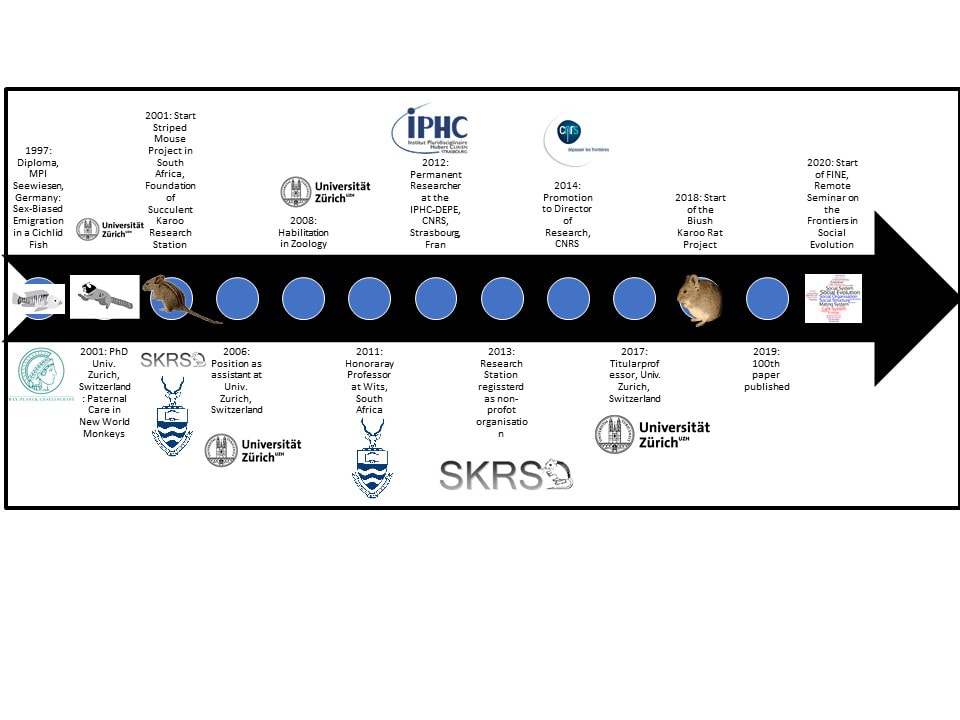Research Interest
I study mammalian social evolution in a combination of long-term field studies and large-scale comparative studies. Since 2001 I conduct long-term field studies in South Africa to understand how behavioural and physiological flexibility allows animals to behave adaptively in their changing natural environment. For this I study socially flexible African striped mice that can switch their social organisation between solitary and group-living. I then proceeded to study such intra-specific variation in social organisation comparatively in all mammals. These studies indicated that the mammalian ancestor was sociable and flexible, and that solitary living in mammals might be a derived adaptive state. This led to a new long-term field project where we study the costs and benefits of solitary living in bush Karoo rats, which is important to understand mammalian social evolution and to contribute to the conservation of the many solitary mammalian species.
Biography
I am a behavioral ecologist and eco-physiologist. I did my diploma thesis (=master) at the Max-Planck Institute of Behavioral Physiology in Seewiesen before doing a PhD about paternal care in New World monkeys at the University of Zurich. In 2001, I went to South Africa where I founded the Succulent Karoo Research Station, studying the social and physiological flexibility of striped mice. While this project was disrupted by the Corona pandemic in 2020, I started at the same field site a new project on costs and benefits of solitary living in bush Karoo rats in 2018. During the Corona pandemic, I managed to remotely boost this project by hiring South African students, one of which now becomes one of two PhD students working on this project in a South African – CNRS joined project. My work in South Africa led to empirical studies on the topic of intra-specific variation in social organisation (IVSO), for which I am the worldwide leading expert. From striped mice I expanded that research topic to a comparative approach in all mammals (1 PhD student and several master students). In international collaborations (USA, CH) we provide new insights into social evolution. During the Corona pandemic, I founded the “International Remote Seminar on Frontiers in Social Evolution (FINE)”. This seminar series is available on YouTube and Zoom, with 500 registered participants from 34 countries worldwide, and it will be permanently maintained even after the pandemic. I teach graduate students at the IPHC-DEPE (scientific writing), the University of Strasbourg, the University of Zurich, and highly gifted primary school children at the Hector Akademie. I have been a team leader at the DEPE for 8 years and established there the BEEPSS seminar series. I authored > 110 peer-reviewed publications. My main scientific results are: 1. Social flexibility (the ability to switch from group- to solitary back to group-living) evolved in striped mice as an adaptation to variation in population density both in time (over years) and space (over sub-populations). 2. IVSO is common in mammals and considering IVSO changes our understanding of social evolution, with the ancestral mammal having been much more sociable than previously thought.
I am worldwide the leading expert in studies about striped mice and understanding the mechanisms and functions of intra-specific variation in social organization, especially in mammals.
I am worldwide the leading expert in studies about striped mice and understanding the mechanisms and functions of intra-specific variation in social organization, especially in mammals.



